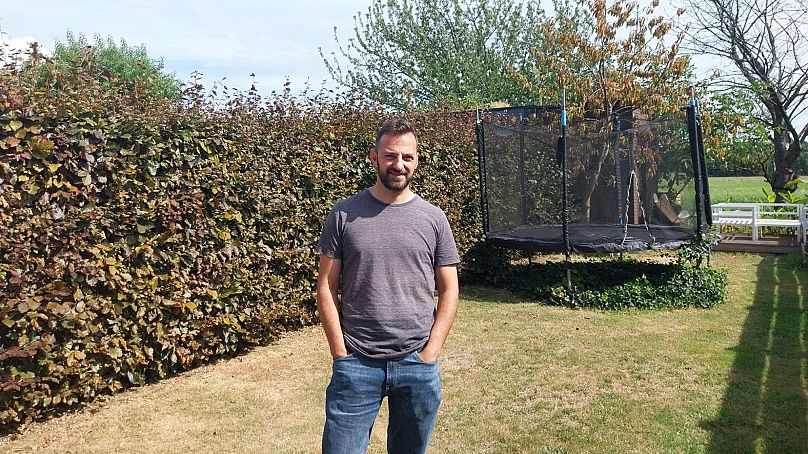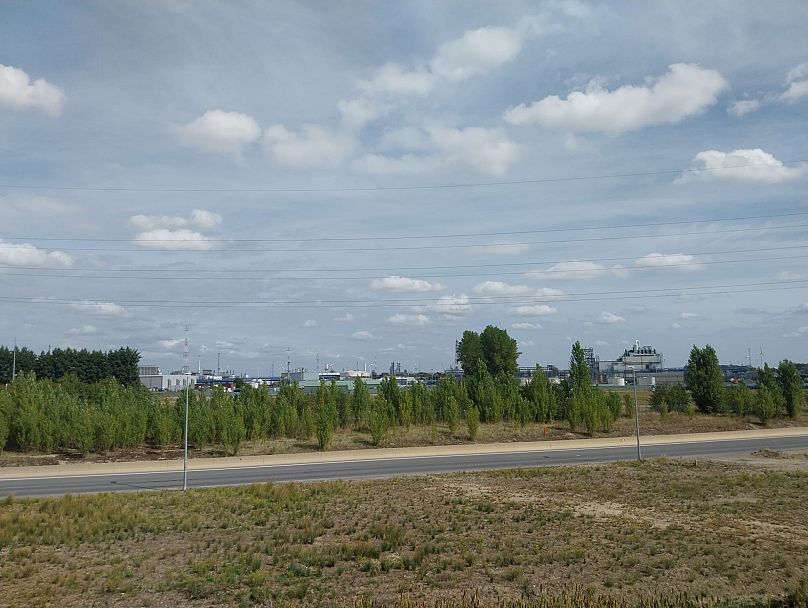Life in Zwijndrecht: A European PFAS hotspot trying to tackle PFAS | Euronews Tech Talks

Zwijndrecht is a typical Flemish town located near Antwerp, in the north of Belgium. Public transport and bicycles are prioritised on its streets, baskets of colourful flowers hang from every lamppost, and detached houses with beautiful rear gardens line the neighbourhoods.
Yet not everything is as perfect as it seems.
In 2021, life in Zwijndrecht changed drastically after a study revealed pollution from per- and polyfluoroalkyl substances (PFAS) around the 3M chemical plant.
PFAS, also known as “forever chemicals,” are resistant to fire, grease, and water. They do not break down in the environment or the human body.
Until 2002, 3M produced perfluorooctanesulfonic acid (PFOS), a possibly carcinogenic type of PFAS, despite being aware of the chemical pollution since the mid-1990s.
In July 2022, the company signed an agreement with the Flemish government committing to a total of €571 million in remedial actions to minimise PFAS contamination risks. Yet some major clean-up solutions are still pending.
Euronews Tech Talks went to Zwijndrecht to meet Jeroen Van Reeth, founder of the citizen collective Zwijndrecht Gezond and a resident of the “red zone”, the heavily polluted area around the chemical plant.
Living in one of Europe’s PFAS hotspots
“It was like a shock for us, it was like: ‘What is this, what is PFAS?” recalled Jeroen Van Reeth, speaking to Euronews Next about the moment in 2021 when he first learned of the pollution in Zwijndrecht.
His partner was among the 800 residents tested for PFAS. Results showed only one in ten had PFOS—a specific type of PFAS—at blood levels considered a low health risk.
Because of their proximity to the chemical plant (less than one kilometre away), Van Reeth, his family and their neighbours were advised to change their habits: avoid eating home-grown eggs and small livestock, limit home-grown vegetables if vulnerable, and do not use groundwater for drinking, cooking, or washing.
“A lot of people who have chickens have put them away, people who have vegetables stopped doing that, and some people just don't mind and keep doing what they are doing,” Van Reeth explained.
His family life also changed significantly. They got rid of all their pots and pans, avoided drinking tap water for three years and had to pay attention to a few details, such as keeping their windows closed when digging took place in fields behind their garden.
The garden is also a big sacrifice for Jeroen Van Reeth and his family.
As part of the remediation measures included in the 3M’s agreement with the Flemish government, the company has engaged in digging up and replacing 70 cm of soil in the gardens of the residents in the red zone.
But three years later, residents are still waiting for the works to begin, while the landfill site designated for the contaminated soil is already full.
How to clean up and destroy PFAS?
The case of Zwijndrecht is emblematic of the challenges surrounding PFAS: the impact “forever chemicals” can have on people's lives, the responsibility of corporations, the political role in addressing the problem, and the measures that can be taken to reduce PFAS dispersals.
There are different techniques to contain PFAS pollution in water and soil, and then to destroy PFAS.
To contain PFAS in soil, both ex situ and in situ methods exist. The first involves digging up the contaminated soil and dumping it in a landfill where it may or may not undergo treatment; the second involves introducing materials, such as certain bacteria or fungi, to try to degrade PFAS on-site.
Yet, these techniques do not guarantee complete success. Johan Van Leeuwen, associate scientist at Utrecht University and the KWR, the Dutch water Research Institute, is critical of the “dig and dump” option, warning that rain falling on the landfill can cause PFAS to leak back into the environment.
“Most of the time, these PFAS then end up again in the environment, in surface waters. And from the surface waters go to the river, from the river to the sea. When it storms, the PFAS get blown back onto land,” he told Euronews Next.
This scepticism is shared by other scientists, such as Hans Peter Arp, professor of environmental chemistry at the Norwegian University of Science. He argues that moving PFAS to a landfill is “moving the problem,” yet understands that this can be necessary in some specific cases.
When it comes to water, the most established technique is activated carbon. Manuela Antonelli, associate professor at the civil and environmental engineering department at the Politecnico di Milano, explained that this technique worked like a sponge, holding PFAS in its pores.
However, this technique needs careful monitoring, and activated carbon needs to be changed: “Like a wet sponge releases water, activated carbon can release compounds absorbed,” Antonelli told Euronews Next.
Destroying PFAS can be even more challenging than confining them. To be eliminated, PFAS require extreme environmental conditions, like heat or electric exposure. The problem is that generating these conditions demands a huge amount of energy and, therefore, money.
According to the second part of the investigation, The Forever Pollution Project, remediation techniques could cost Europe up to €100 billion every year.
Today







